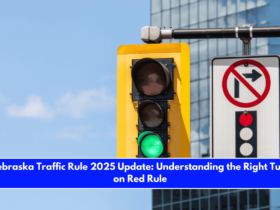In most cases, Rhode Island police cannot search your phone during a traffic stop without a warrant. Your cell phone is protected by the Fourth Amendment, which guarantees your right to privacy and prohibits unreasonable searches and seizures.
Key Legal Principles
- Warrant Requirement: Police must obtain a search warrant from a judge to search the data on your phone, even if you are arrested during a traffic stop. This principle was established by the U.S. Supreme Court in Riley v. California and is recognized in Rhode Island law and police policy.
- Consent: If you voluntarily give police permission, they may search your phone without a warrant. You have the right to refuse consent, and you cannot be arrested solely for refusing to allow a search.
- Exigent Circumstances: There are rare exceptions where police can search your phone without a warrant, such as emergencies where they believe evidence may be imminently destroyed or someone’s life is at risk.
- Password/Access: Police cannot force you to provide your password, fingerprint, or face scan to unlock your phone unless they have a warrant. You may refuse to provide access, and consent can be revoked at any time during the search.
What About Location Data?
- Rhode Island law specifically requires police to get a warrant before accessing any information about your phone’s location, except in emergency situations.
During a Traffic Stop
- Routine Stops: If you are stopped for a traffic violation, police cannot extend the stop or request to search your phone without reasonable suspicion or probable cause of criminal activity.
- Searches Incident to Arrest: Even if you are arrested, police still need a warrant to search your phone’s contents, with very limited exceptions.
Summary Table: Police Searches of Phones in Rhode Island
| Situation | Can Police Search Your Phone? |
|---|---|
| Routine traffic stop | No, unless you consent or there is a warrant/exigent circumstances |
| After arrest | No, warrant required for phone data |
| With your consent | Yes |
| Exigent circumstances (emergency) | Yes, but only in rare, urgent cases |
| Accessing location data | Warrant required (except emergencies) |
Rhode Island police generally need a warrant or your explicit consent to search your phone during a traffic stop. You have the right to refuse, and you cannot be penalized simply for saying no.
Sources:
- https://law.justia.com/codes/rhode-island/title-31/chapter-31-21-2/section-31-21-2-5/
- https://www.notguiltyri.com/illegal-searches-in-rhode-island
- https://www.golocalprov.com/news/local-privacy-experts-applaud-supreme-court-cell-phone-ruling
- https://www.providenceri.gov/wp-content/uploads/2021/07/330.03-Search-Seizure.pdf











Leave a Reply